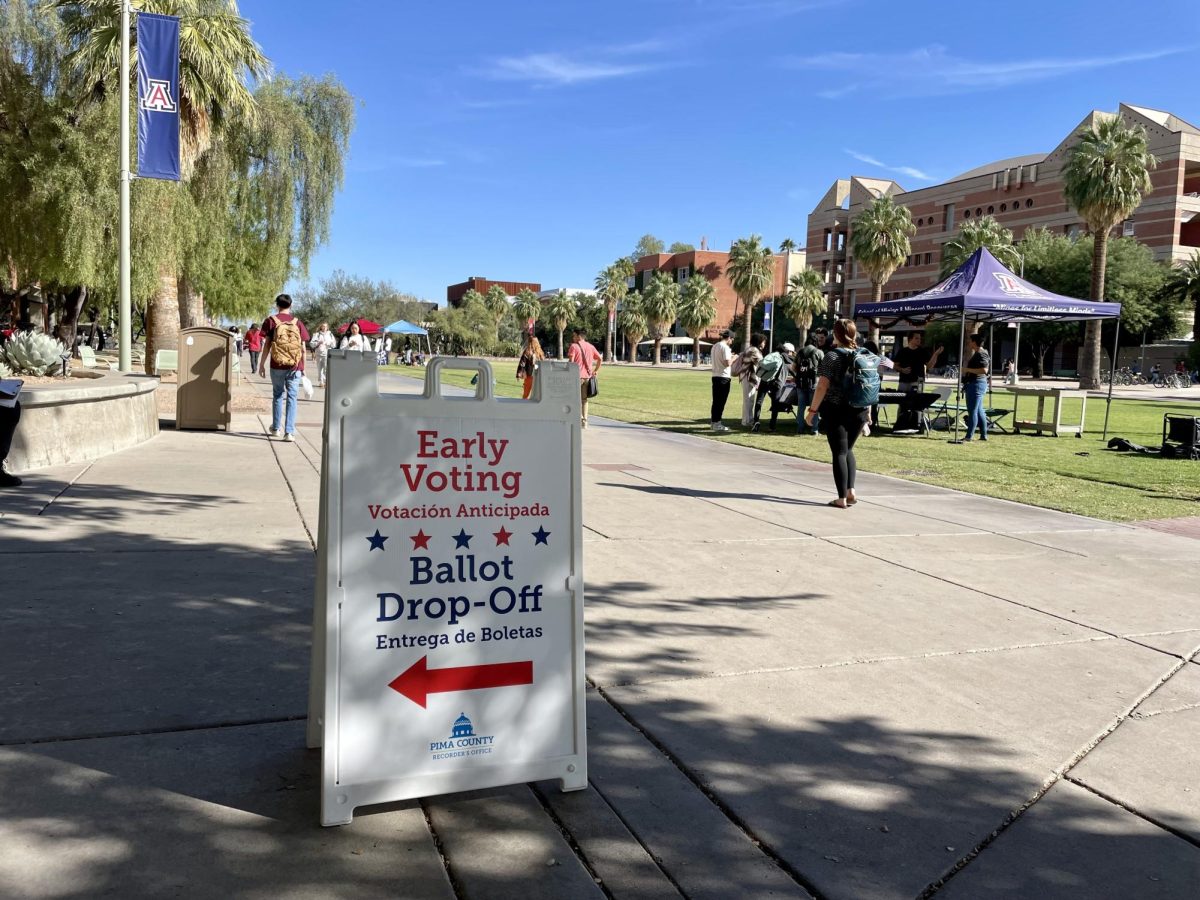This year the Associated Students of the University of Arizona’s Senate class and executive team addressed many issues on campus.
While this year was cut short because of the COVID-19 pandemic and all on-campus affairs were subsequently suspended, the student senate tackled subjects in the time it had, including the reformation of the ASUA constitution, elections, important resolutions and the establishment of the mental health committee.
Important resolutions
The AZCensus resolution was passed unanimously in senate at the Oct. 9 meeting. This resolution, spearheaded by Student Body Senator Rocque Perez, intended to raise awareness for the current 2020 census in an effort to fuel participation among students.
One of the most important resolutions passed was the VOICES resolution created in support of the Native American students on campus at the Nov. 6 meeting. It was created in partnership with Voice of Indigenous Concern in Education and Native Student Outreach, Access, and Resiliency; the resolution was made an action item and voted on, passed unanimously in urgency due to comments made by UA President Dr. Robert C. Robbins.
The Removing Barriers to Voting resolution was passed at the same meeting in partnership with NextGen. The resolution was made to bring civic responsibility into the senate and onto the campus in its entirety. It was discussed heavily and passed unanimously with a roll-call vote.
The Trans Day of Resilience resolution was created in partnership with Pride Alliance by College of Social and Behavioral Sciences Senator Matt Hernandez. It was created in solidarity and support for the students of the transgender and gender non-conforming community in recognition of their contributions and efforts to the university, also recognizing Nov. 20 as UA’s official Trans Day of Resilience. It was moved to an action item and passed by the senate in the meeting.
Mental health
ASUA President Sydney Hess ran on a platform last year of promoting mental health reform on campus. Many of the senators were interested in helping with the promotion of mental health, and all senators expressed interest in joining the mental health committee when it was established.
The mental health committee, a standing committee, was created at the Oct. 30 meeting and included senators Joseph Sturm, Ana Mendoza and Madison Smith, headed by Senator Allie Schoenike. The committee was created to be the center of the mental health initiative, making sure that it is seen to its full potential.
ASUA elections
The ASUA elections were held March 3-4 right before the halt of university affairs, appointing a whole new executive team and senate class for the 2020-2021 school year. The elections saw competitive races for the positions of student body president, executive vice president, senator-at-large, as well as senators for the College of Social and Behavioral Sciences, College of Engineering and College of Medicine.
In the executive elections, Tara Singleton beat out Rocque Perez in the presidential race, while Noah Vega beat out Vincent Jasso for the executive vice president position. Maryan Hassan secured her spot as administrative vice president after running unopposed.
RELATED: ASUA general election results
The three open seats for Student Body Senator were vied for by six candidates, conclusively going to Nora Day, Lady Dorothy Elli and veteran senator Rodrigo Robles.
Three colleges had competitive races for the chance to represent their college as a senator in ASUA: the College of Engineering, College of Medicine and College of Social and Behavioral Sciences. The College of Social and Behavioral Sciences will be represented next year in senate by Ally Devereux, the College of Medicine by Marisol Ibarra and the College of Engineering by Swathi Ramkumar.
The ASUA House of Representatives
On Feb. 19 at the weekly ASUA meeting, the Joint Constitutional Reform Committee gave a report that proposed immense changes and new amendments to the ASUA Constitution. The changes mainly revolve around Article II of the constitution. Many of the other changes presented are general proceedings that either needed to be corrected or changes that fall in line with having two legislative bodies and how they will work together.
President Hess presented the addition of 29 appointed members of the student body, which, according to the new constitution, “will include representation of twenty-two student communities that are represented by a University unit/department and seven other student communities not represented by a designated University unit/department.”
In addition to these representatives, there will be one student member of the Tohono O’Odham nation and one of the Pascua Yaqui nation that will serve in the ASUA House of Representatives. This is done in recognition of the university’s presence on these tribes’ original land. Along with these representatives serving on the house, one of the members of these nations will also be serving as Speaker of the House, or chief spokesperson for the house.
The duties of the house will run along the same lines of the senate. The new changes to the constitution that outline the duties of both legislative bodies would have ASUA function similar to the United States legislative bodies and governing. Much like the rest of ASUA operations, these are modeled and will be executed analogously. The operations of the senate and the house together will be a big change, but the biggest will ultimately be the sharing and passing of legislation.
The Feb. 26 ASUA meeting brought much discussion from all members of the senate, as is expected with a change of this magnitude. But after all of this, the senate ultimately passed the amended constitution. This referendum passed on the general elections ballot on March 3-4 for students to vote on, meaning ASUA will see the addition of a House of Representatives beginning the 2021-22 school year.
Follow Maggie Rockwell on Twitter









